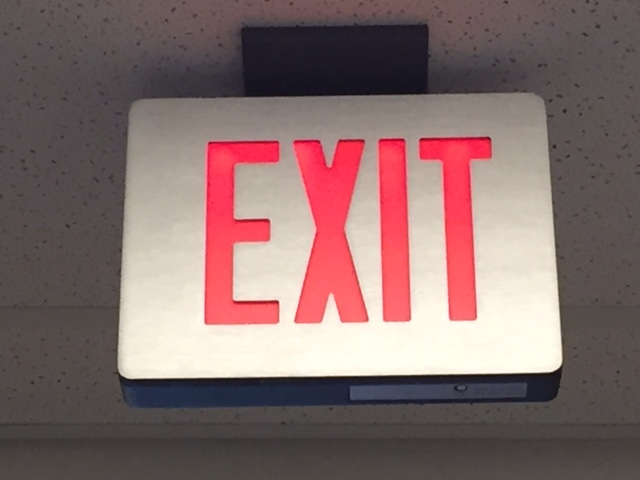When the principal’s voice announces that we are in a lockdown, we might suspect that it is a drill, but we don’t really know. At the beginning of the year, I speak to each class about lockdown procedures. I spend about 20 minutes instructing my classes where to sit — as far away from windows as possible on the classroom floor — and assign who will be responsible for closing the blinds while I cover the window with a pre-cut strip of green butcher paper and lock our door. During this initial instruction, I am careful to scan the students — many look bored, but some are listening intently and forget to mask their worry. I try to discuss anxiety but from a humorous slant: Don’t worry if you have to use the bathroom, that’s what trashcans are for! If you’re hungry, I have treats in my cupboard, but they only appear during lockdown, so do not ever ask about them on a regular day. Then, I ask if they have questions.
This year, one student asked, “Don’t you think the shooter would know we’re in here?” I answered that chances were, yes, and went on to bring up adrenaline and how it can affect a person’s plan. I mentioned giving a speech, or taking a driving test as examples — sometimes we have a plan, I said, and then it goes missing the minute we are in a given situation. I indicated that I hoped if any of us were specific targets, the shooter might forget that during an adrenaline-filled episode. Another student in one of my sophomore classes asked, “What would you do if the shooter got in here?”
I have considered this more than a thousand times. I have imagined taking my desk chair and instructing students to break the narrow window by my desk in order to grasp thick, thorny Palo Verde branches and swing or climb down to safety while I somehow wrestle with a faceless, armed intruder. I have considered writing a letter to my own children in case a situation like this were ever to arise because I cannot envision myself not trying to protect young lives. I reply to my students that their thick, purple literature books could probably stop a bullet or cause a concussion — and then we make jokes about what English is really good for.
America, the fact that my colleagues and teachers across this country have to engage in a lockdown procedural lesson each year is unacceptable. The fact that our society has grown accustomed to the drills and the repeated news of another school shooting to the point that it no longer shocks is unacceptable. The fact that I have to wonder about the welfare of my own children should I die trying to protect student lives is unacceptable. Each day, it seems, there is a debate about who kills — guns or people?
Meanwhile, I have to put the words of Robert Frost, Shakespeare or Millay on hold to discuss how to hide from an armed intruder during a school day. At what point will the absurdity of this truth demand new legislation? Sometimes, I am convinced that it is apathy or an absolute lack of empathy that has brought our country to this point. I refuse to enter the debate about Second Amendment rights because my politics aren’t the business of my students, but aspects of that debate have led us to this new “normal”: this culture of what-to-do-when-an-armed-intruder-deals-his-emotions-in-lethal-bullets. I can’t imagine that the general population, at least anyone who is a parent, is at ease with this new aspect of education.
The issues surrounding what would lead one to enter a campus and begin shooting are systemic and must be addressed. That is not my job, however. My job is to prepare your children to be able to express their thoughts in writing clearly and to be able to comprehend all kinds of texts. I ask you to do your job as conscientious citizens better so that I can do my job better, too. I ask that you address these issues in whatever way suits you, as a professional and as a citizen, without pause until our curricula no longer include emergency lockdown procedures. I ask that you consider the anxiety present in my 15-18 years old students each time a drill is announced, to picture their furrowed brows and pulsing bodies as they nervously tap fingers or feet. I’m honestly not sure which is more disconcerting: that I have to work to relieve such anxiety, or that each year there seems to be less of it.
During our last drill, the fire alarm was set off as a ruse of sorts. Seasoned teachers have learned that when a fire alarm is set off during a lock down drill, it is crucial they don’t evacuate their students. This is because there have been incidents in which shooters have triggered alarms to lure people from their locked rooms. There is an element of gallows humor at play when we suspect that the fire alarm is being pulled to test newer staff. Which new teacher will leave a lockdown situation and inadvertently guide their students to a parking lot only to be slightly chastised at the next staff meeting for essentially leading “kids to a slaughter?” This year my students jolted and prepared to leave when the fire alarm sounded. I shook my head no and made the sign for shhh. I kept a calm demeanor. I remember thinking how loudly the alarm was sounding. Are the right people listening?









